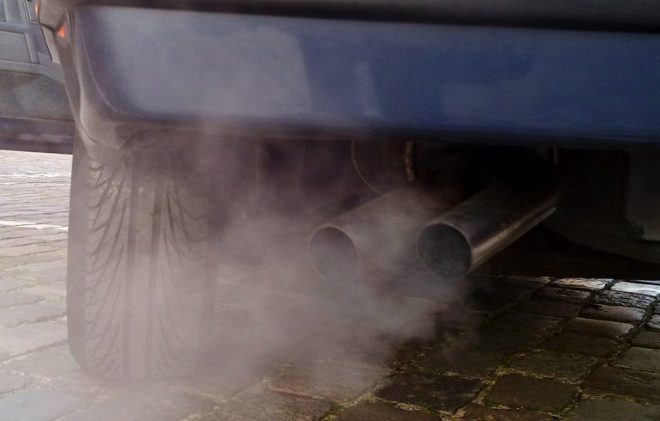
Wednesday December 6, 2017
Nitrogen oxide gasses, which are released into the air from motor vehicle exhaust, pose a major risk to public health and the environment. Image credit: Ruben de Rijcke
Within the last 10 months, a number of countries announced huge plans to tackle emissions. Apart from generating energy from renewable and clean sources, they are targeting fossil fuel-based cars with the hope of eradicating them in the near future.
NORWAY (2025)
Norway announced its plans to enforce a ‘polluter pays’ tax system, which aims to encourage its citizens to purchase low and zero emission vehicles. By 2025, the country will completely ban petrol-powered cars and will only allow the sales of 100% electric or plug-in hybrid cars. In order to achieve zero-emission vehicles, any fossil fuel-based car that had been sold before the ban will have to switch to plug-in hybrids or biofuels.
“By 2030, heavy-duty vans, 75% of new long-distance buses, and 50% of new trucks must be zero emission vehicles. Also, by 2030, 40% of all ships in short sea shipping should be using biofuels or be low- or zero-emission ships.” ~ Norwegian Public Roads Administration
GERMANY (2030)
The resolution also urged German lawmakers to encourage their counterparts in Brussels to push incentives for only zero-emission vehicles to be registered by 2030.
Germany is taking serious steps to switch to renewable and clean energy. In the first half of 2017, Germany generated 35% of its power from renewables. Their plan is to cut greenhouse gas emissions by 40% in 2020 and 95% by 2050. Germany also plans to shut down all of its nuclear power plants by 2022.
INDIA (2030)
By 2030, only electric cars will be allowed in India according to the Piyush Goyal, the Minister of Railways and Coal in the Government of India. “We are going to introduce electric vehicles in a very big way. We are going to make electric vehicles self- sufficient like UJALA. The idea is that by 2030, not a single petrol or diesel car should be sold in the country,” he says.
FRANCE (2040)
This year France announced banning sales of petrol and diesel cars by 2040. The move, which was announced by Emmanuel Macron’s government, is part of an ambitious plan to meet its targets under the Paris climate accord. France will also implement new measure to reduce the use of fossil-fuel powered cars before banning them.
“By 2023, France aims to have a fleet of 2.4 million rechargeable electric and hybrid vehicles, as well as a 3% of NGV heavy duty vehicles. Biofuels blended with petrol are set for 1.8% in 2018 and 3.4% in 2023, and for diesel 1% in 2018 and 2.3% in 2023.” ~ Ministry of Ecology, Sustainable Development and Energy
UK (2040)
Starting from 2040, petrol and diesel cars and vans will be banned in the UK. The decision, which was announced recently, came amid fears that rising levels of nitrogen oxide pose a major risk to public health. Nitrogen oxides are a group of gases that contribute to climate change. These gasses, which are mainly composed of nitrogen and oxygen, are released into the air from motor vehicle exhaust or the burning of coal, oil, diesel fuel, and natural gas.
The UK is also allocating 344 million USD to tackle emissions. “Poor air quality is the biggest environmental risk to public health in the UK and this government is determined to take strong action in the shortest time possible. That is why we are providing councils with new funding to accelerate development of local plans, as part of an ambitious £3 billion programme (4 billion USD) to clean up dirty air around our roads.” a government spokesman said.
CHINA AND THE NETHERLANDS (????)
The two nations haven’t yet made the final decision, but they have announced on separate occasions that they are “considering” banning fossil fuel-powered cars. The Netherlands is pushing the ban to 2025 while China is yet to announce the date of the ban. China’s plan to ban petrol and diesel cars in the “near future” is very encouraging! The country is currently the world’s biggest vehicle market, so passing this ban will force auto companies to adapt to change and switch to renewables and clean energy.